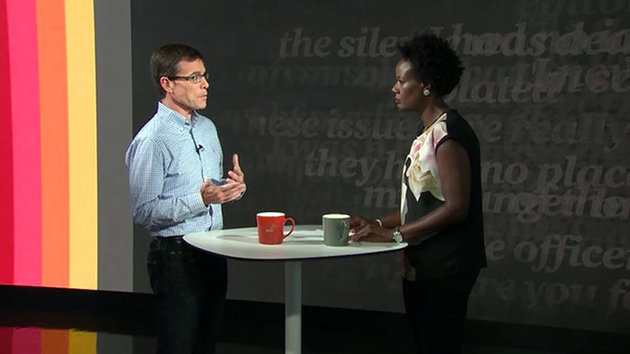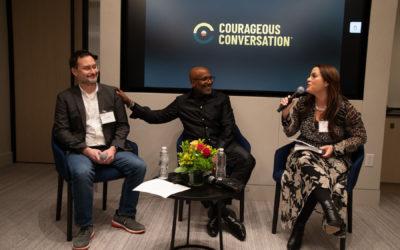By Emily Peck—Dec. 12, 2016
Talking frankly about race relations isn’t the kind of thing that normally happens at a massive accounting firm. But this past summer, PricewaterhouseCoopers took time out to do just that, starting a conversation that’s now reshaping the way the 45,000-person company handles hiring and promotions.
PwC employees gathered in groups and one-on-one meetings around the country on July 21 and got very real about their experiences with race in America, including at the office. Black employees talked about feeling that they could not fully be themselves on the job.
“You have to have one foot in and one foot out. … Living as a black person but wanting to be accepted in a place where you are trying to be successful,” a young tax associate said in Atlanta.
“You have to leave yourself at home and then try twice as hard as everybody else when you get to the office,” said an intern in Washington.
Those quotes come from the accounting firm’s U.S. CEO and chairman, Tim Ryan, who wrote up what happened that day in a LinkedIn post.
“More tears were shed at Pricewaterhouse than in our 120-year history,” Ryan told The Huffington Post recently.
The summer of 2016 had been particularly hard on the company’s black employees, many of whom felt shook up by a spate of racially charged gun violence. Over just the first week of July, Philando Castile was shot and killed by a police officer in a suburb of St. Paul, Minnesota, with the whole event broadcast live on Facebook. In Baton Rouge, another black man, Alton Sterling, was also shot to death by police. Then a sniper in Dallas went after the police themselves at a Black Lives Matter rally.
It was overwhelming, and yet black employees in particular felt like they couldn’t talk about it at the office. “When I came to work on Friday, the silence was deafening,” one person wrote to Ryan that month.
Ryan was then just a few days into the role of CEO ― although he’d been with the firm for 28 years ― and he hadn’t thought that one of his first priorities would be addressing diversity and inclusion issues. Suddenly, it was. He kicked off his response in the usual corporate way, with a company-wide email. He acknowledged the tragic events and asked how people were doing.
Hundreds of emails poured in from employees feeling scared and anxious and seeking to be understood. Ryan shared some in his LinkedIn post:
“When I was a new associate, after my first busy season, my younger brother was shot and killed by a police officer … he was 22 years old … The firm in many ways helped me get through that tragic event,” a senior manager wrote.
“As a black woman, who is married to a black man, I’m scared every day for him. I support the New York Black Inclusion Network (BIN) and we just had a conversation today on what we could do … to move this country forward,” another manager said.
Ryan wanted more talk like this. And so the day of conversation was conceived.
Another company-wide email went out.
“These conversations are not easy and sometimes uncomfortable,” Ryan wrote in the email, which he shared with HuffPost. “But one thing I’ve heard this week is that it’s also uncomfortable when the issues that are on the top of our minds are not part of the conversation at work.”
It might seem misplaced to get this personal at work. It’s definitely unusual in corporate America. But having these kinds of deep discussions, opening up about how you’re doing, is simply an acknowledgement that work is where we spend a lot of our time, said Ryan.
People should feel they can be themselves at the office, he said. And from the boss’s perspective, creating a supportive workplace is not just the right thing to do; it’s another way to improve employee performance. You work your best when you feel at home and your voice is heard.
“Discussing these types of difficult topics is usually assumed to be the responsibility of community leaders, politicians, and activists,” Ryan wrote on LinkedIn. “But our people spend a good portion of their lives within the walls of this firm and more than anything, I want them to be able to bring their whole selves to work.”
Read more at The Huffington Post.




